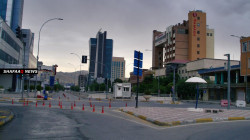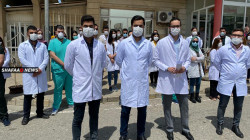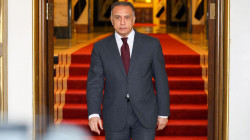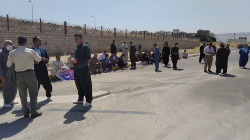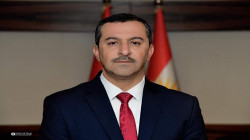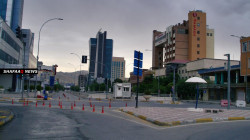Book signing ceremony honors Kurdish Leader Mulla Mustafa Barzani in al-Sulaymaniya
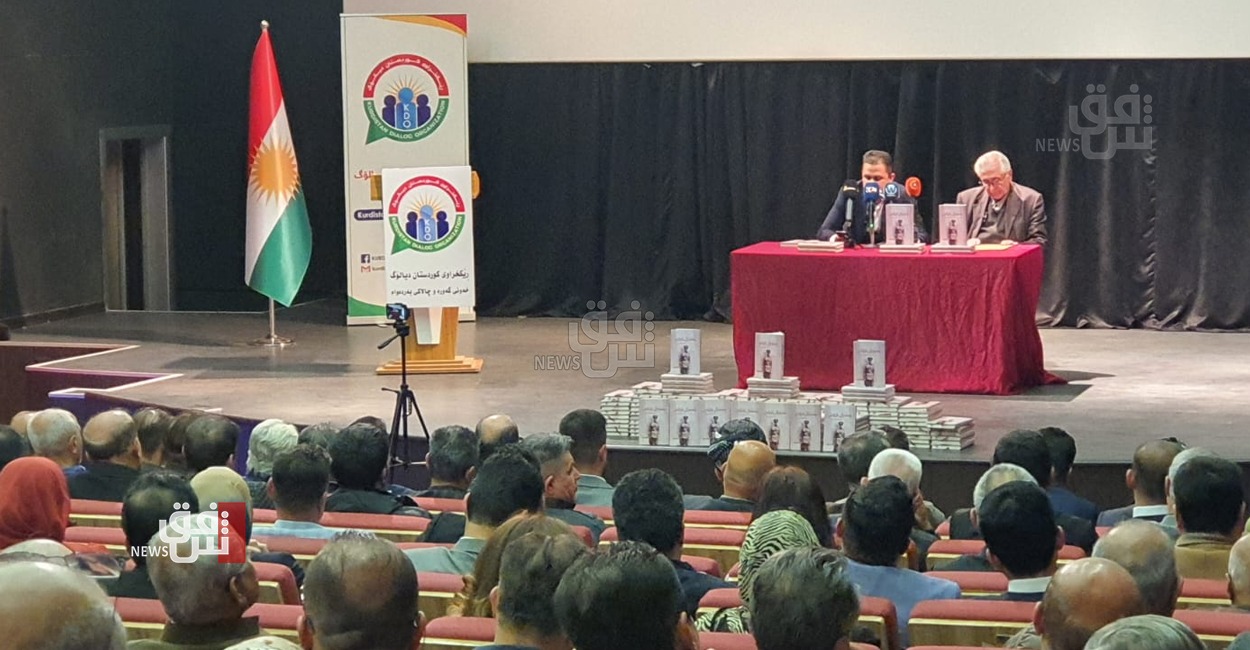
Shafaq News / A signing ceremony for the book "General Barzani", authored by Kawa Amin, was held in al-Sulaymaniya governorate, on Wednesday, coinciding with the approaching anniversary of the birth of the Kurdish leader, Mulla Mustafa Barzani.
Dana Hossam, the media officer of the Kurdistan Dialogue Organization (KDO), told Shafaq News Agency, "On the occasion of the anniversary of the birth of the Kurdish leader, Mulla Mustafa Barzani, today we held a ceremony attended by a large number of intellectuals and writers to distribute, sign, and introduce the book 'General Barzani' by author Kawa Amin."
He added, "The book discusses the biography of Mulla Mustafa Barzani, shedding light on his revolutionary journey in serving the Kurdish liberation movement and his role in the Kurdish system."
He further explained that "the book was printed at the organization's expense and is the twenty-eighth of the organization's productions, as it focuses on national and nationalist figures in addition to issues related to the national language."
Meanwhile, the Kurdistan Regional Government (KRG) announced the suspension of official work in government institutions on Thursday, coinciding with the anniversary of the birth of the Kurdish leader, Mulla Mustafa Barzani.
For many Kurds, Mullah Mustafa's personality and journey serve as a unifying force and genuine inspiration throughout the 20th century for the Kurdish struggle.
His symbolic and tangible journey on foot for 50 days, after the failure of the Mahabad Republic experiment in 1945, heading towards Soviet territories, marked the beginning of a new era of struggle.
It is known that Mullah Mustafa remained in the Soviet Union until the revolution toppled the monarchy in Iraq, established by Britain in July 1958. He then returned from exile to lead the KDP, which attracted a diverse group of intellectuals, activists, nationalists, leftists, and conservative tribal leaders.
Russian researcher Anna Borshchevskaya published a study in 2023 titled "Russia and the Kurds: A Soft-Power Tool for the Kremlin", stating that despite the rapid fall of this republic, Kurdish nationalist figures remained committed to the idea of their own state, including Mullah Mustafa, who founded the KDP in 1946.
After the republic's fall, Barzani and his comrades sought refuge in the Soviet Union, where the leader Barzani stayed for over a decade before returning to Iraq, where he led a revolution against the central government.
Mullah Mustafa worked towards the hope that emerged after the fall of the monarchy in Baghdad, especially through negotiations with Abdul Karim Qasim.
However, these negotiations collapsed later, as he sought to secure Kurdish rights in the post-monarchy constitution, including making Kirkuk the "capital" of Kurdistan. The conflict then shifted to the military field between the two parties.
Even with the fall of Qasim's regime in 1963, Mullah Mustafa's options did not improve, as subsequent regimes in Baghdad treated the Kurds with the same hostility, despite the ongoing negotiations that Barzani attempted to conduct.
This situation persisted until the historic settlement with the Ba'athist regime that seized power in Baghdad in 1968, where an agreement was reached with the regime's second man at the time, Saddam Hussein, in March 1970, known as the Autonomy Agreement for the Kurds.
However, the Shah of Iran's agreement with the Baghdad regime at that time to redraw the Shatt al-Arab border by offering Iraqi concessions, and the Shah's pledge to withdraw his support for the Kurds under the "Algiers Agreement", reopened the door to war on the Kurds.
Large Iraqi military forces moved to attack Kurdish villages and areas, forcing over 200,000 Kurds to flee to Iranian territories.
At the same time, Washington was trying not to provoke its ally, the Shah, and ignored his agreement with Baghdad, failing to prevent the large-scale attacks on the Kurds.
After the Algiers Agreement in 1975, Mullah Mustafa left Iraq to Iran and then to the United States, where he underwent treatment at George Washington Hospital before passing away on March 1, 1979.
